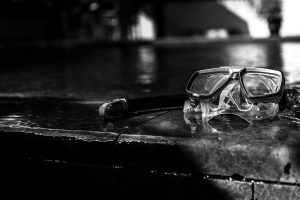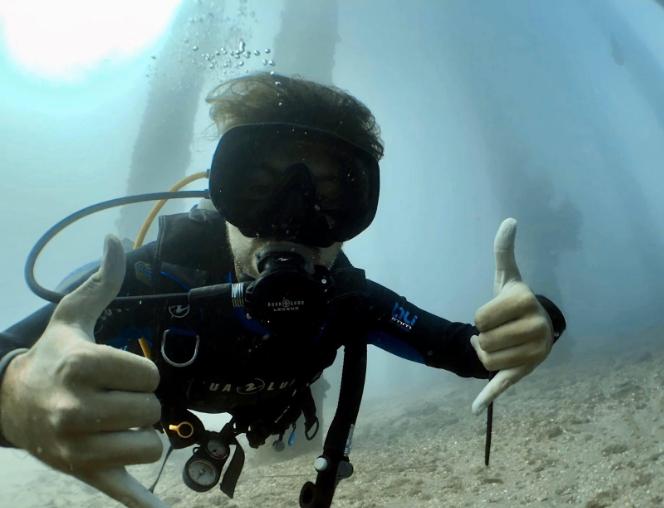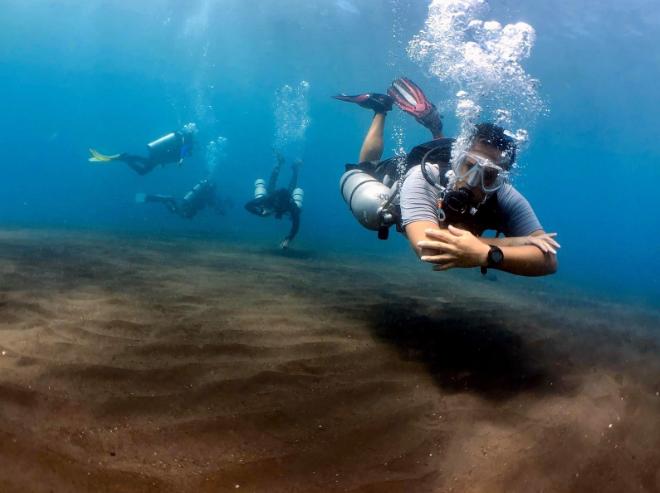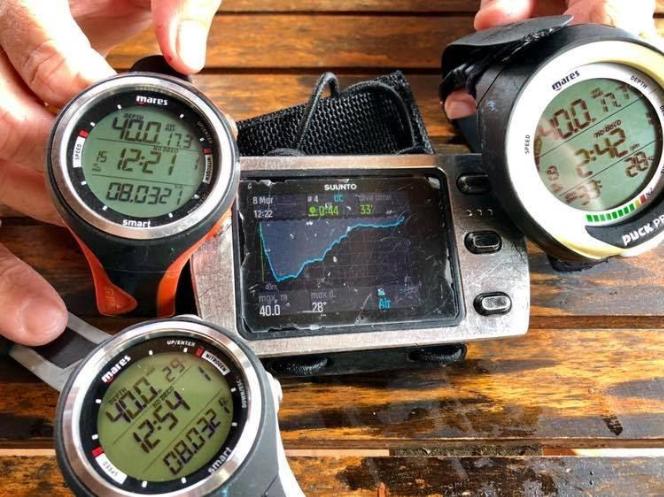What to look for when buying scuba gear (1)
Scuba diving is a gear heavy sport with many pieces of equipment. There is an overload of possibilities when it comes to buying your own gear. As your scuba gear also is your life support it definitely is worth investing time to find the equipment that fits you perfectly. Having your own gear is just the next step to enjoy your diving even more with a maximum of comfort.
As purchasing a whole scuba equipment is a big investment most people don’t buy all at once but step by step. You can split up the purchase of scuba gear into different parts:
The Basics – “Snorkel Equipment”

The basics consist out of scuba mask, snorkel and fins. If you have your own, it already makes a great difference to your diving experience.
- Scuba Mask
You should look for a mask that really fits your face. It shall not be too lose and also not to tight, otherwise it’s going to get foggy all the time during your dives. It should sit watertight, so you can enjoy your dive with a great view. There are endless options on the market, if possible try some from your local dive shops and your friends to see what you like best.
- Snorkel
When looking for a snorkel for your scuba diving you really can stick to the basics. The mouthpiece should fit comfortably and the breathing should be dry and easy. In addition to this you should pay attention to how it attaches to the mask. A lot of snorkels have a purge at the bottom to make it easier to clear.
- Fins
Of course your fins should fit snugly and not pinch your toes. The fins are too small if you can’t wiggle your toes. Furthermore, your fins should enhance the efficiency of your swimming and prevent muscle fatigue and cramps. Which fins are efficient for you totally depends on your body structure and muscles. For example smaller more flexible fins work better for smaller, less conditioned divers. You can decide between full foot and open heel fins. Full foot fins are made for warm water, as they don’t require booties. Open heel fins are more practically and can easily be adjusted, which might be an advantage.
Thermal protection – exposure protection suits
The right choice of type and thickness of an exposure protection suit totally depends on the conditions you are diving in. In any case it should fit snugly without restricting you in any movements. It also shouldn’t fit too lose as the main reason for wearing an exposure suit is too keep your body warm.
What are your tips to look for when buying scuba gear? Let us know all about it in the comments!



